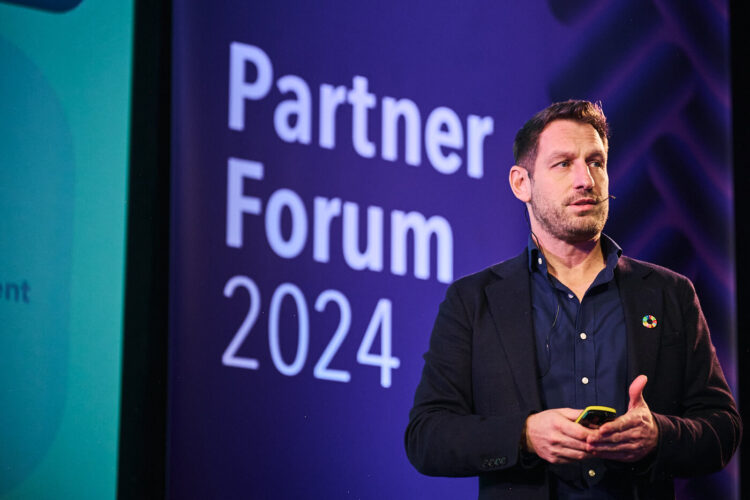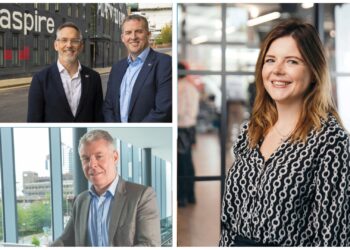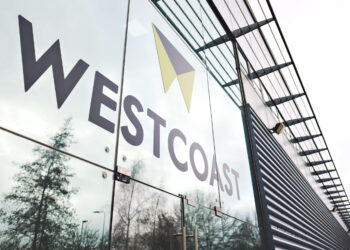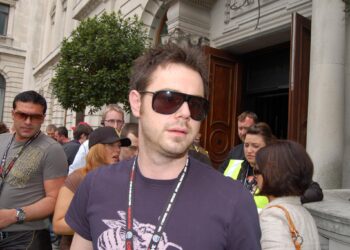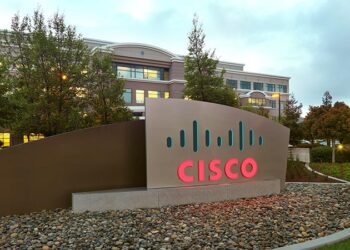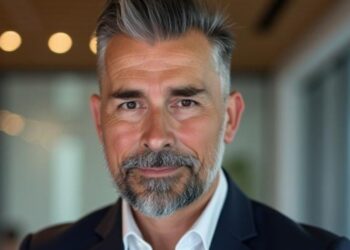Softcat is “only just getting started”, its CEO Graham Charlton claimed today as the Marlow-based reseller unveiled its vision for the future at its 2024 Partner Forum.
In his opening keynote, Charlton reflected on Softcat’s fiscal 2024 performance, which showed gross profit and gross invoiced income both topping expectations by advancing by around 12%.
He picked out Softcat’s 13% rise in administrative expenses as the most telling metric of all, however.
“Our administrative expenses are our people costs – 85% of Softcat’s cost base is people – so it was pre-meditated,” he said.
“We knew coming into the year that, despite the fact it was a difficult market, we were going to continue to invest for the long term.
“The most important thing for us is to keep investing in the business to make sure we’re the right partner for you, not just now but well into the future.”
Softcat claims to have an almost 5% share of its £60bn estimated addressable market.
But Charlton claimed the LSE-listed giant is “only in the early stages of what could be a really exciting journey”.
“We’re 32 years old now but in many ways we’re only just getting started,” he said.
Following Charlton onto stage was CRO Anthony Cowen, who talked up Softcat’s progress at winning larger customers.
“We’re no longer a midmarket reseller with enterprise ambitions; we’re an enterprise reseller. We have landed in that space,” he said.
“If vendors don’t have net zero goals, it could swing decisions”
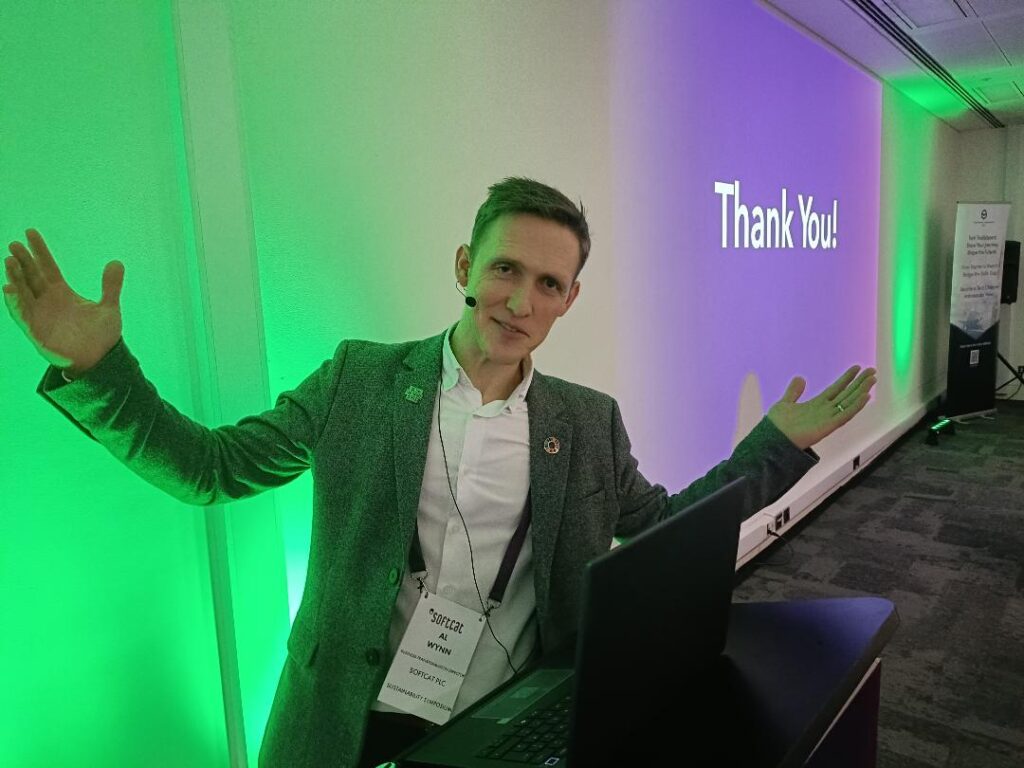
Elsewhere at the event, Business Transformation Director Alastair Wynn talked about how Softcat is increasing pressure on its suppliers to follow its lead and sign up to science-based carbon reduction targets.
Seven of Softcat’s top 100 vendors, distributors and services partners have had their targets approved by the SBTi, with a further 16 having set targets, Wynn said.
“That leaves close to 75 of them,” he explained.
“We need to make sure that every single partner we operate with has some net zero commitments that ideally align with ours. If not, over time it’s going to impact decisions. Because customers want this, and are asking us for this. If they haven’t got that, potentially it may swing decisions and outcomes in a different direction.”
Wynn also put up an IDC stat indicating that one in nine mobile phones are currently circular.
“I don’t think we’re anywhere near that level in laptops, but I see no reason why we can’t be,” he said.
“If we can come together – the vendors, the disties, the partners – we can absolutely get to that level relatively quickly.
“We’ve got to look at this through a different dimension than selling old or refurbished rather than new. It’s a different market; it’s additive. And we want to make sure we can grow the opportunity size rather than replace current mechanisms.”
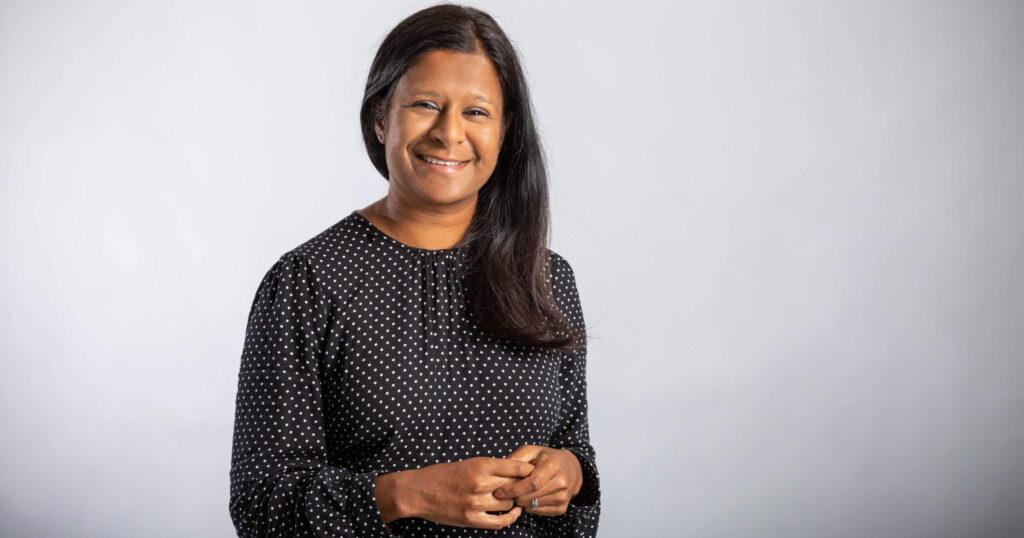
Anushka Davies, Head of Employee Engagement, Diversity and Inclusion, acknowledged that DE&I is “a bit of a strange place to be at the moment”, meanwhile.
“Research suggests that some funding is being taken away from people and jobs are getting a bit harder to do in our organisations,” she said.
“I’m really lucky that I’ve got a leadership team and a board who really back all the work we do, and I know that this is challenging for some of our partners at the moment.
“Our door is open to make sure we can collaborate. I’m a massive fan of sharing ideas and best practice, and there are some great opportunities for us to work collectively better together.”
“Culture eats strategy for breakfast”
During his keynote, Charlton paid tribute to the Softcat company culture that was created by founder Peter Kelly and developed further by second CEO Martin Hellawell.
“I’ve never worked in a place that illustrates more clearly that culture eats strategy for breakfast,” he said.
Softcat’s culture, alongside its circle of investment, means it has “the best customer proposition in the UK”, Charlton claimed.
“We want to make that the best customer proposition in the world one day,” he concluded.
Doug Woodburn is editor of IT Channel Oxygen


